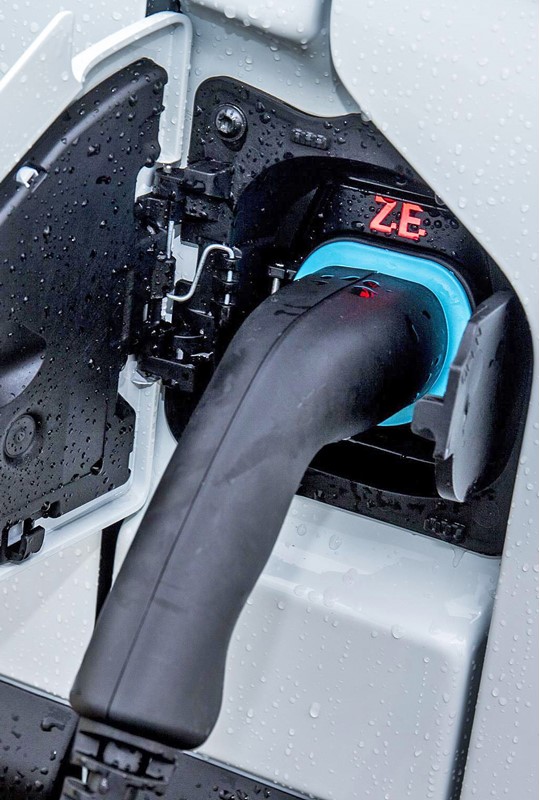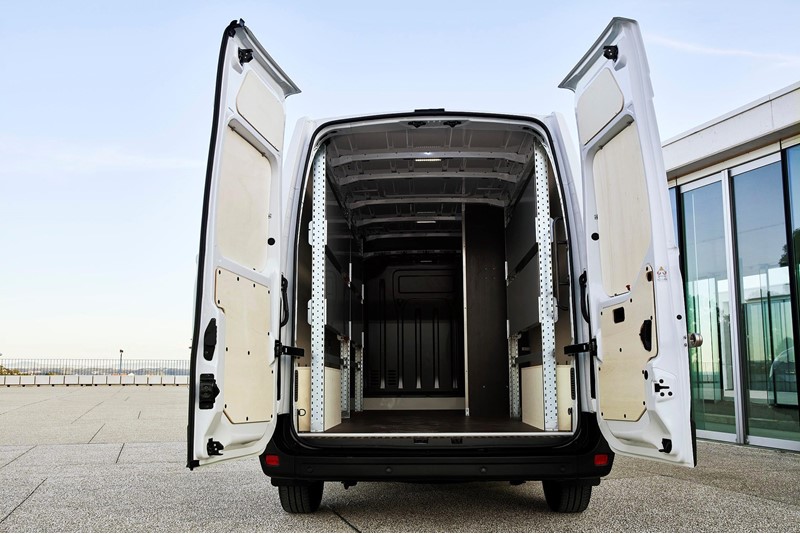Review
Renault’s electric Master Z.E is entering a market where it has – as yet – few direct competitors.
DV and Iveco are the only ones able to field rivals at present. Other manufacturers have developed battery-powered panel vans, but have yet to launch them in the UK.
Master Z.E has a 77PS electric motor and is on offer with 8.0, 9.0, 10.8 or 13.0cu m load areas.
We sampled one with a 13.0cu m load box and a modest 975kg payload capability; payload capacities go up to 1128kg dependent on the model.
Access to the load area is by means of twin back doors which can be pushed through 180 degrees plus a nearside sliding door. Front-wheel drive makes it easier to manoeuvre heavy items on board.
Ten load tie-down points are provided plus a full-height steel bulkhead which looks stout enough to protect the occupants of the cab from injury.
It is worth noting the electric Master has the same onboard safety devices as its diesel-powered stablemates such as ABS, electronic stability control and electronic brakeforce distribution.
So what’s Master Z.E like to drive?
With next to no noise bar the odd creak from the suspension, it is remarkably relaxing. If you are looking for stress-free van driving, then this as close as you are likely to get.
All that torque available immediately means you can zip away from the traffic lights briskly, and neither the ride nor the handling raise any issues.
Drawbacks? The key one is a short range between battery recharges.
While the official NEDC figure is a creditable 124 miles, Renault is honest enough to admit that the real-world estimated summer range is 75 miles.
The estimated winter range is just 50 miles however – short enough to give some fleet operators cause for concern.
A longer range would be possible, but that would mean a bigger battery; and payload capacity could suffer.
Press the Eco Mode button to throttle back performance and you might be able to squeeze out a few more miles.
The bad news is that it makes the vehicle feel sluggish, even when you are lightly laden and travelling along roads where there are no significant inclines.
As with Kangoo Z.E 33, it takes from six-to-17 hours to recharge the battery fully dependent on where it is plugged in.
While we alluded to the absence of stress, the Z.E voice system needs to be deployed in town centres to warn pedestrians and cyclists of your presence. Just hope they are not wearing headphones and thus oblivious to anything that is happening outside.
Master Z.E does not come cheap. Even with the plug-in van grant, our demonstrator would cost a hefty £48,800; significantly more than the nearest equivalent Euro 6 diesel.

VERDICT
A potentially-useful package and one that ticks a lot of environmental boxes, but both the range and price give some cause for concern. Bear in mind that Master Z.E is also being marketed through the Renault Trucks network.






 Diesel
Diesel












